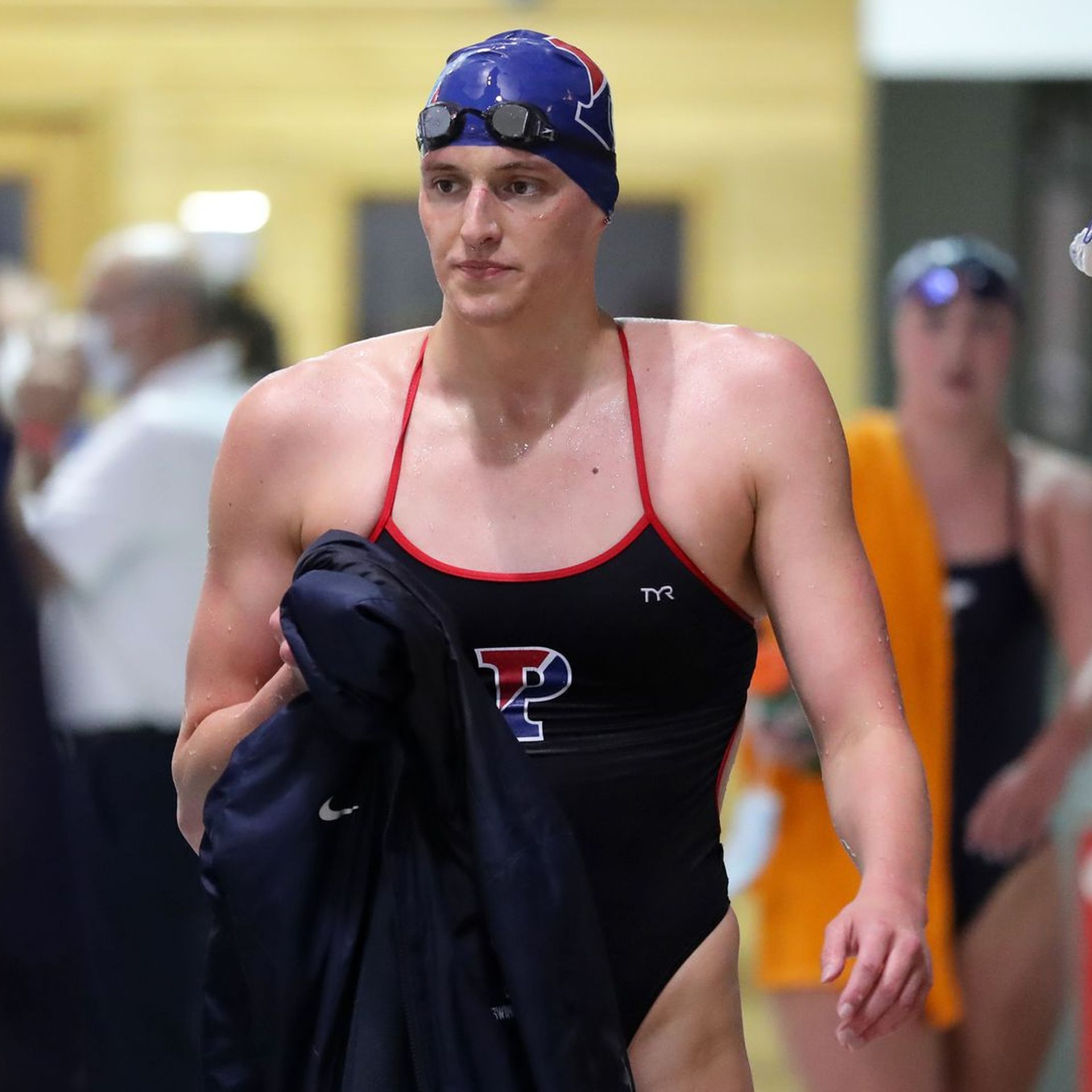Lia Thomas’ Retirement: A Defining Moment in the Debate Over Fairness and Inclusion in Sports
Lia Thomas’ decision to retire from competitive swimming has stirred widespread conversation, raising difficult but necessary questions about identity, fairness, and the future of sports. What some viewed as a personal choice now stands as a critical turning point in the broader dialogue about inclusivity, representation, and the evolving definition of competition.
In her emotional statement, Thomas reflected not on the physical demands of elite sports, but on the emotional weight she has carried—feelings of isolation, the ongoing struggle for acceptance, and being scrutinized not for performance, but for identity. Her experience is not isolated; it echoes the voices of many transgender athletes navigating a complex and often contentious landscape.

A Personal Decision with Far-Reaching Implications
Thomas’ retirement follows months of public debate, petitions, and policy discussions centered on the participation of transgender athletes in women’s sports. As the first openly transgender woman to win an NCAA Division I title, her career became a flashpoint in the ongoing clash between inclusion and competitive equity.
In her words:
“The challenges I’ve faced haven’t been about physical performance, but about being seen and accepted. No athlete should feel marginalized because of who they are.”
For her supporters, Thomas’ departure is a profound loss for the sport and a sobering reminder of the emotional toll of being in the public eye while breaking new ground. For critics, her success sparked ongoing debate around the biological differences between transgender and cisgender athletes—highlighting the tension between fairness and inclusion.
More Than an Exit—A Call for Reflection
Thomas’ exit is more than the end of a career; it’s a catalyst for reevaluating how sports institutions, fans, and policymakers address gender diversity. Her journey forces us to ask: Can fairness and inclusion truly coexist in competitive sport? And if so, how do we create regulations that reflect both evolving science and human dignity?
Supporters argue that Thomas’ story highlights the urgent need for a compassionate, well-informed approach—one that includes medical, ethical, and psychological perspectives. Critics emphasize physiological differences and question the implications for the future of women’s competition. What remains clear is that there are no easy answers.

Toward a New Era of Competitive Sport
Thomas’ experience reveals the gaps in current sports policies, especially those relating to gender identity and biological variation. Many existing regulations may no longer reflect the complexities of modern athletes’ realities. Moving forward, sports organizations must develop frameworks that are both inclusive and evidence-based—balancing hormone levels, physical characteristics, and the broader impact on fairness.
This discussion requires the voices of athletes, endocrinologists, ethicists, and governing bodies alike. It’s a conversation that must move beyond politics and personal opinion toward an empathetic, science-informed model that supports all athletes equitably.
Beyond the Headlines: A Human Story
Beneath the controversy lies a human being—an athlete who achieved at the highest level while enduring immense public pressure. Whether celebrated or criticized, Lia Thomas’ story is ultimately one of resilience. Her retirement calls for a shift in perspective: from polarization to progress, from judgment to understanding.
In recognizing the emotional and social challenges she faced, we must also recognize the courage it takes to walk away—not from sport, but from a space where one feels unseen or unwelcome. Her story demands that we examine the culture of sport itself: Are we building environments that support all athletes, or are we pushing some to the margins?

A Defining Chapter in the Future of Sport
Lia Thomas’ retirement signals a transformative moment. It compels sports communities to ask themselves how they can move forward in a way that respects both individual identity and the integrity of competition. Her journey reminds us that athletes are more than statistics or silhouettes on podiums—they are people, with emotions, struggles, and stories that matter.
As we look ahead, it’s essential that the sporting world embraces meaningful, respectful dialogue. Through open discussion and inclusive policymaking, we can create a future where every athlete—regardless of gender identity—is judged by their dedication, not their difference.
Because in the end, sport should be a place where excellence thrives not despite diversity, but because of it.



